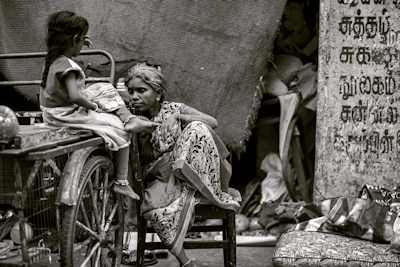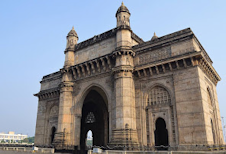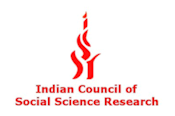Citizenship Futures - The Politics of Hope

Researcher: Dr Indrajit Roy
Citizenship futures invites you to reflect on the ways in which hopes for the future remain central to the political imaginations of socially excluded people. Join us as we walk through socially excluded neighbourhoods, talk to people who confront social exclusion every day of their lives, and learn from them about the hopes they harbour for their and their children’s futures.
About the project
Hope for the future, we contend, remain central to the political imaginations of socially excluded people. Key to the construction of collective hope is their ability to both navigate the risks posed by social exclusion as well as patiently endeavour for change. Hope is not an individual property. When considering possibilities, people may hope for higher standards of living, increased respect from others in society, better-paying jobs, durable physical infrastructures, government responsiveness to social problems and embeddedness in family and community. Such hope-making is enmeshed in broader social, cultural and economic processes. We reflect on the politics of such hope-making in three global cities.
Project Funding
The project is supported through a collaborative €453,000 grant made by the Economic and Social Research Council, the Agence Nationale de la Recherche and the Indian Council of Social Science Research under the EU-India Platform for the Social Sciences and the Humanities.
Meet the team
Principal Investigator
- Dr Indrajit Roy, University of York
Co-Investigators
- Dr Carole Gayet, Centre de Recherches Sociologiques sur le Droit et les Institutions Pénales.
- Dr Simon Parker, University of York.
- Prof Suryakant Waghmore, Indian Institute of Technology-Bombay.
Affiliated researchers
- Dr Oznur Yardimci, University of York.
- Melissa Williams, University of York.
Publications
Conjunctural Insurrections – “Everyday Activism amid the Pandemic: Civic Associations as Avenues of Hope for the Marginalized” by Khushboo Srivastava (Indian Institute of Technology–Bombay, India) and Öznur Yardımcı (University of York, UK)
York Hope Consortium
Resources
What hopes to socially excluded people harbour for their future, in the context of the social relations of power to which they are subjected? To answer this question, we draw on ethnographic approaches. As a method of “social research based on the close-up, on-the-ground observation of people and institutions in real time and space” (Wacquant, 2003), an ethnographic approach is particularly suited to investigating how and why people act, think and feel the way they do about possible futures, and especially the hopes they harbour for these futures.
Our ethnographies employ an explicitly comparative research methodology by pursuing a set of common analytical questions, which makes it possible to compare emerging political subjectivities across specific contexts (Fox and Gingrich 2002, Moore 2005). Insights gained from the ethnographic studies are explored further from a cross-cultural perspective through a comprehensive review of relevant literature on ethnographies of citizenship in other countries. This approach strengthens the comparative dimension and allows for more general theoretical conclusions concerning the relationship between hope, social exclusion and imaginations of citizenship.
The ethnographic resources we use for this project are available on this page for reference and use of other researchers. These draw on the PI’s previous research on the politics of circular labour migrants in India. Acknowledgement of use will be appreciated. Recommended citations are available within each of the documents.
Everyday practices checklists
The centrepiece of any ethnography is observation of the everyday practices of our ethnographers. By exposing researchers to what might otherwise be perceived as insignificant, ethnographic methods allow them to appreciate the quotidian ways in which people create new identities and forge new practices that interrogate (or affirm) existing relations of power, authority and influence. The observation checklists are being used and improvised by our post-doctoral fellows as they ethnographically ‘hang out’ with their interlocutors.
Everyday practices checklists (MS Word ![]() , 40kb)
, 40kb)
Life history checklists
Developing life histories entail the compilation and assembling of ‘life courses’ of individuals in relation to not only their families, neighborhoods and communities, but also the broader socio-economic and political continuities and changes within which they are embedded. Life histories provide a rich source of data that enable researchers to examine the relationship between agency and structure. Our post-doctoral fellows use and refine the life history checklists to develop granular accounts of their interlocutors.
London

Journal entries:
Mumbai

Journal entries:
Paris

Journal Entries
Share your thoughts on hope with us...
What does hope mean to you?



